How Detroit Tigers are working to narrow the gap and compete for top Japanese players
NASHVILLE, Tenn. — The Detroit Tigers have been non-existent in Japan for 20 years.
President of baseball operations Scott Harris, hired more than 14 months ago, is trying to change the situation. He wants the Tigers to be a real competitors for players in the Asian markets, just like the Los Angeles Dodgers, New York Yankees and Chicago Cubs.
Getting to that point requires a massive uphill climb, but as one person in a National League front office explained, if anyone can establish Detroit as a destination Japanese players take into consideration, it's probably Harris and general manager Jeff Greenberg.
"That makes perfect sense," the NL person said. "I think that really comes from the Theo Epstein executive tree, where you're always trying to find value."
PREVIEW: Five questions for Tigers at winter meetings
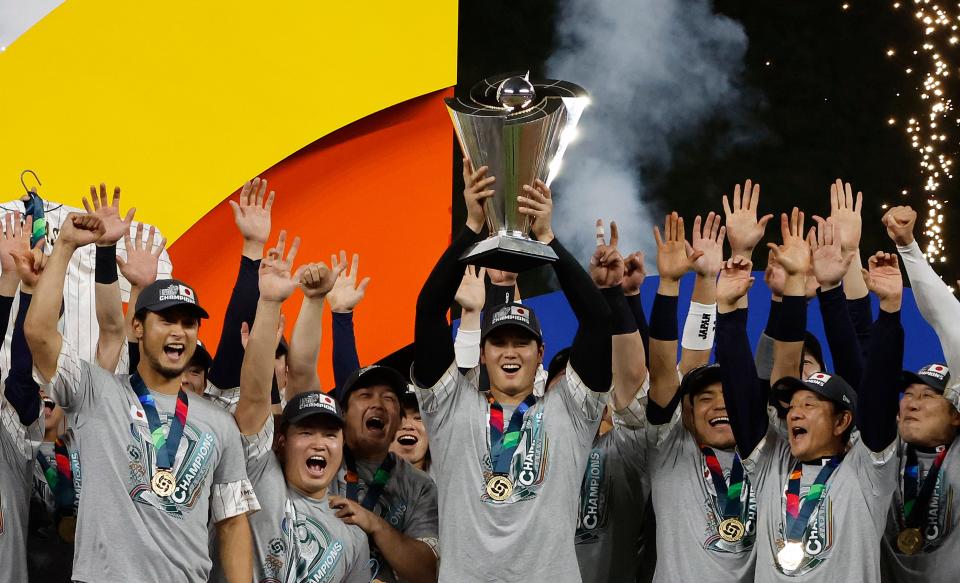
The Tigers aren't one of the prime destinations for Japanese players, in part because downtown Detroit doesn't have a large Japanese community and the city isn't as enticing as coastal cities like Los Angeles, Seattle New York and Boston. There's also the simple fact that the Tigers, aside from one signing in the late 1990s, didn't bother to pursue Japanese players — until now.
Rebranding is difficult when it's been a decade since the Tigers were relevant on the national stage. The Tigers haven't won anything, besides No. 1 overall draft picks, since clinching their fourth consecutive American League Central championship in 2014.
Still, Harris is actively trying to sell his brand of the Tigers to Japanese players while taking steps behind the scenes to increase the Tigers' presence in Japan and other Asian markets.
Harris most prominently showed his commitment to increasing the Tigers' activity in Japan by signing veteran right-hander Kenta Maeda to a two-year, $24 million contract. The 35-year-old is one of the most well-respected Japanese players in the big leagues.
"Kenta is the first Japanese player we've had in a long time," Harris said, "which is a huge opportunity for us to make Detroit feel like home for Kenta and his family. If we can do that, we're going to get a better version of Kenta next year, and the Tigers are going to win more games. And if, in addition to all of that, creating a first-class experience for Kenta and his family, if that inspires other Japanese players to want to come to Detroit and play here, that's great."
TIGERS ON MAEDA: Tigers expect veteran Kenta Maeda to help young pitchers 'lock in our command'
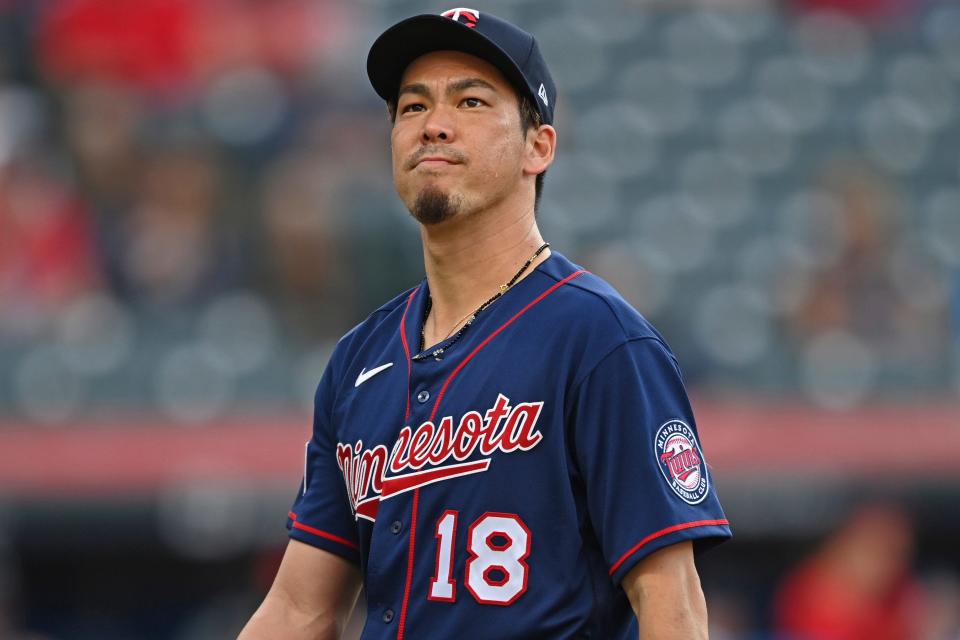
Maeda, 35, signed with the Los Angeles Dodgers out of Japan in 2016. He was traded to the Minnesota Twins in 2020 and became a free agent after the 2023 season.
The Tigers were the first team to contact Maeda.
Maeda, who lives with his wife and two children in Tokyo during the offseason, has recognized a lot of Old English D logos on jerseys and hats in Japan over the years, but as he explained, people in Japan don't realize the Old English D is associated with the Tigers in the United States.
"I think that's a pretty cool-looking logo," Maeda said. "I think a lot of people in Japan are already wearing hats and jerseys, not knowing it's for the Detroit Tigers, just for the looks. It's already a thing here."
Now, people in Japan wearing those hats and jerseys will correlate the Old English D with the Tigers throughout the next two years, simply because of Maeda's presence in Detroit.
Even more people in Japan will take notice if the Tigers sign right-hander Yoshinobu Yamamoto or left-hander Shōta Imanaga at some point within the next month. Yamamoto and Imanaga have signing deadlines set for Jan. 4 and Jan. 11, respectively, after both pitchers were posted by their Nippon Professional Baseball teams.
"Would love to sign Yamamoto," said one AL scout, who has evaluated both pitchers. "The track record at 25. No draft pick attached (from rejected qualifying offer). He is a No. 2 or No. 3 starter."
The Big 3
Imanaga appears to be a better fit for the Tigers because of the price point, but the 25-year-old Yamamoto — who has won three Sawamura Awards as the best Japanese starting pitcher in the past three seasons — has captured the attention of MLB teams this offseason and is the second-biggest name behind two-way superstar Shohei Ohtani in free agency.
Maeda, a former two-time Sawamura Award winner, is already recruiting fellow Japanese pitchers to join the Tigers in the immediate future. The Tigers didn't ask Maeda to recruit, so it's happening naturally.
"It'd be nice to be able to play with fellow countrymen on the same team," Maeda said. "I already have eight years of service time here, so if anyone comes to the Tigers, I think I can offer some good advice about pitching in America."
MAEDA ON TIGERS: Kenta Maeda believes Tigers are on track to be 'a winning team' in 2024 season
Yamamoto posted a 1.16 ERA with 28 walks (4.2% walk rate) and 176 strikeouts (26.7% strikeout rate) over 171 innings in 24 starts last season. He throws a 95 mph fastball from a low release point with above-average vertical movement, a 90 mph splitter and a rainbow curveball.
Top executives Brian Cashman (Yankees), Andrew Friedman (Dodgers), Jed Hoyer (Cubs) and Farhan Zaidi (San Francisco Giants) traveled to Japan to scout Yamamoto.
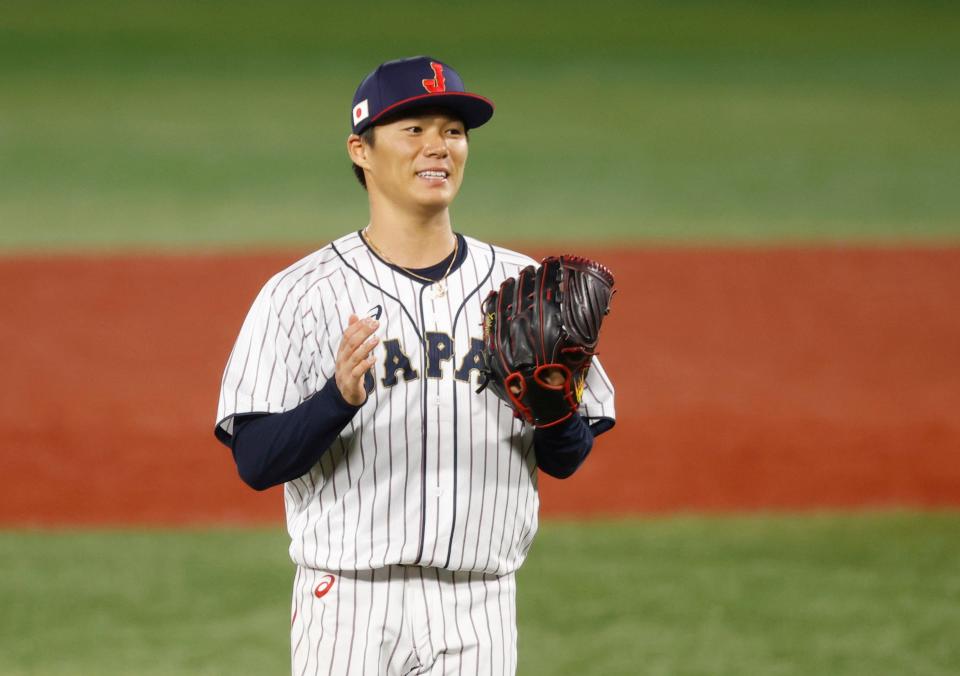
It's unclear if Harris, who used to work under Hoyer and Zaidi, traveled to Japan.
But Harris is known to fly under the radar.
More than a dozen teams want to sign Yamamoto, primarily because at 25, he is an outlier compared to traditional free agents in their 30s. The Tigers have been linked to Yamamoto, but their chances of landing him are unlikely considering the teams in the mix: Yankees, Dodgers, Giants and New York Mets.
One league source indicated at the beginning of the offseason that Imanaga is a more realistic option for the Tigers, but that same person acknowledged that anything — even Yamamoto — is possible now that Greenberg has joined Harris in the Tigers' front office.
ROSTER PREDICTION 1.0: Newcomers fill big roles, but holes still exist heading into winter meetings
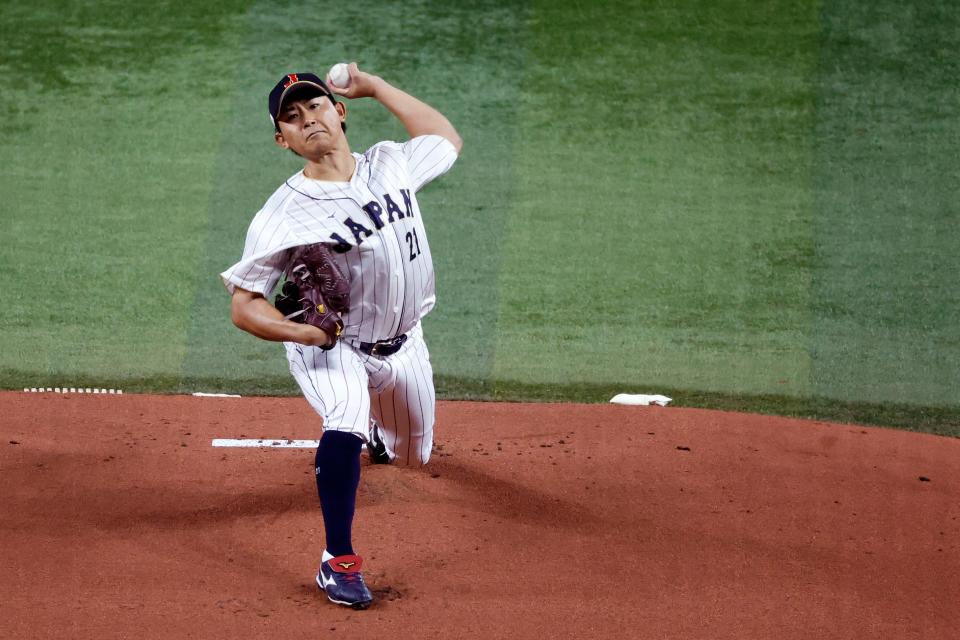
Imanaga, who would solve the Tigers' need for another left-hander in the rotation, registered a 2.66 ERA with 24 walks (3.8% walk rate) and 188 strikeouts (29.5% strikeout rate) over 159 innings in 24 starts last season.
He throws a 92 mph fastball with elite vertical movement and a mid-80s splitter, adding above-average command.
"Finesse lefty who can definitely pitch," the AL scout said. "Concerns for me are size and ability to handle workload, and how his stuff will look when he moves to the MLB ball. ... The (Double-A) Southern League ball (with enhanced grip) was basically what the NPB ball is, and it had a significant affect — about 3 inches more carry."
A lesser-known pitcher, primarily because he isn't subject to the posting system, is left-handed reliever Yuki Matsui.
The 28-year-old had a 1.57 ERA with 39 saves last season, throwing a 93 mph fastball and an 88 mph splitter. He is projected by MLB Trade Rumors to sign a two-year, $16 million contract, without a posting fee.
Yamamoto is expected to receive at least $200 million, plus a posting fee. Imanaga is expected to receive at least $75 million, plus a posting fee. They are open to playing with fellow Japanese players, and they don't have geographical preferences.
There are three tiers of the Japanese posting system. If the contract is worth less than $25 million, the MLB team pays the NPB team 20% of the contract value. If the contract is worth $25-50 million, the MLB team pays the NPB team $5 million plus 17.5% of any amount over $25 million. If the contract is worth more than $50 million, the MLB team pays the NPB team $9.275 million plus 15% of any amount over $50 million.
For example, if Yamamoto signs for $250 million, the MLB team would send an additional $39.275 million to the Orix Buffaloes, and if Imanaga signs for $100 million, the MLB team would send an additional $16.775 million to the Yokohama Bay Stars.
It's unknown if the Tigers will be aggressive in pursuing the Japanese pitchers over the next month. Getting one of the two starters will be expensive for any team.
Narrowing the gap
Although Detroit doesn't have a Japanese community, Novi — a suburb located 25 miles northwest of downtown Detroit — has the largest Japanese population of any town in Michigan.
Novi doesn't compare to Los Angeles, but the suburban town outside of the big city is a selling point to prospective players from Japan.
On the baseball side, Harris is working to narrow the gap between the Tigers and coastal high-spenders like the Dodgers and Yankees by making adjustments behind the scenes, though fixing the situation won't happen overnight.
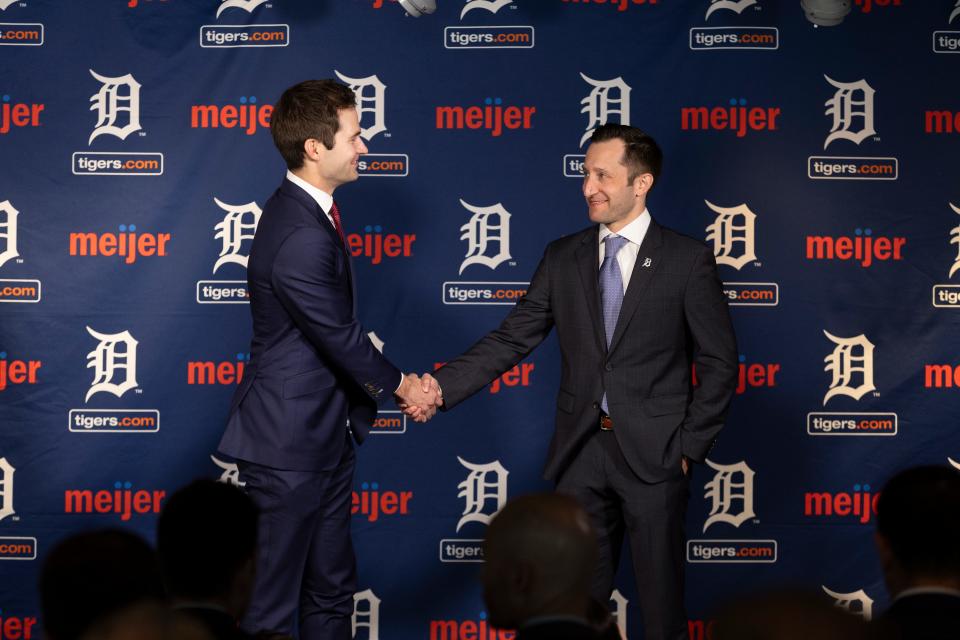
To get better, though, the Tigers are significantly increasing the amount of trips to Japan and Korea for their senior evaluators, namely assistant general manager Rob Metzler and global crosschecker Chip Lawrence.
Kan Ikeda, who worked for Team Japan and won a gold medal in the World Baseball Classic, is moving from the advanced scouting department to the Tigers' front office. He has a deep network of contacts in Japan and relationships with almost all of the overseas players.
The Tigers also invested in additional data and video resources to help improve their system to project how players from the Asian leagues, such as Japan's NPB, will perform after transitioning to MLB.
The Tigers might swing and miss in pursuit of Japanese players this offseason, but signing Maeda and implementing changes to their scouting efforts will pay off at some point in the future. Maybe they'll be ready for the next Japanese phenom, 22-year-old right-hander Rōki Sasaki, whenever he gets posted by the Chiba Lotte Marines.
After all, the Tigers haven't signed a player directly from Japan since Masao Kida in November 1998.
The next player to sign with the Tigers directly from Japan — whether it's Yamamoto, Imanaga, Matsui or other players in future years — will be the second player to do so in franchise history.
"The negotiation part, that's up to the GMs and presidents," Maeda said, "so I don't think I have too much control over that. I'll support in any way possible, but that's all I can do."
Contact Evan Petzold at epetzold@freepress.com or follow him @EvanPetzold.
Listen to our weekly Tigers show "Days of Roar" every Monday afternoon on demand at freep.com, Apple Podcasts, Spotify or wherever you listen to podcasts. And catch all of our podcasts and daily voice briefing at freep.com/podcasts.
This article originally appeared on Detroit Free Press: How Detroit Tigers are working to compete for top Japanese players
